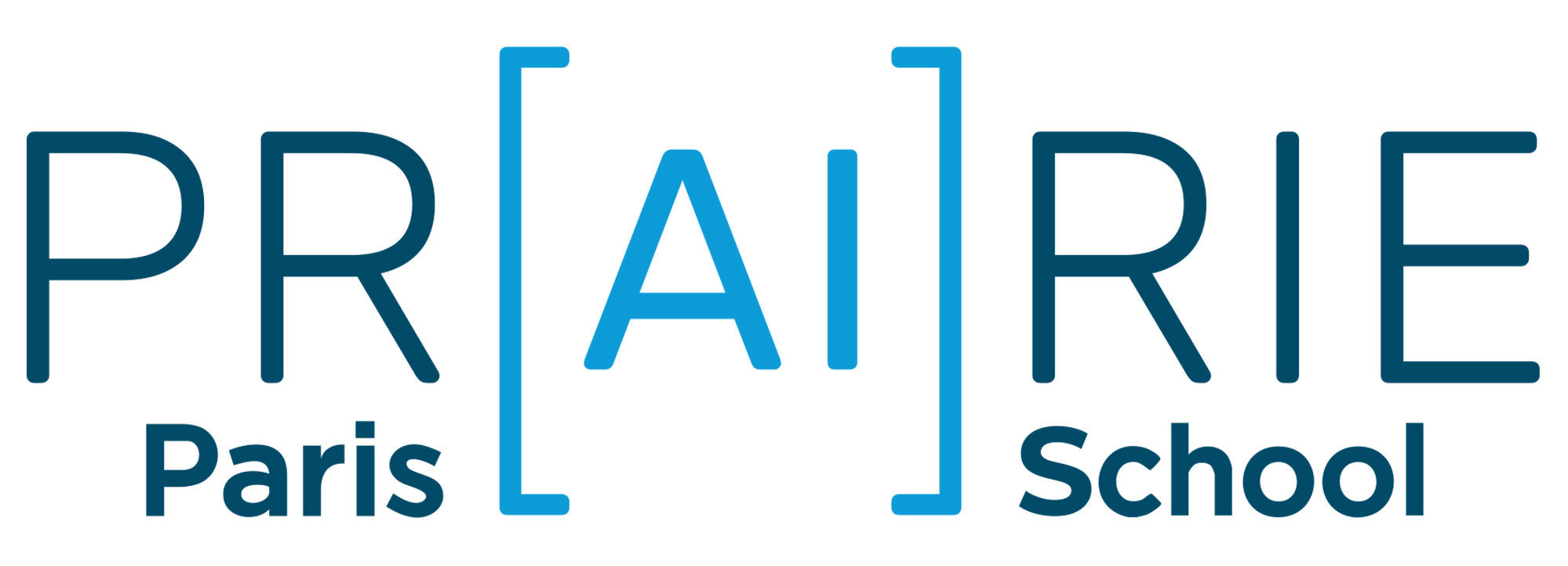Pr[AI]rie Days in partnership with France Digitale
Station F, 5 Parv. Alan Turing, 75013 Paris

Registration closed
Programme
13:30 Opening
- Alain Fuchs, President of Université PSL
- Edouard Kaminsky, President of Université Paris Cité
13:45 The impact of AI on sciences
Moderator: Stéphanie Allassonnière
- Nicholas Ayache, Research Director Inria, member of Académie des Sciences, Scientific Director of 3IA Côte d’Azur
- Anne-Marie Lagrange, Research Director CNRS, astrophysicist Observatoire de Paris, member of Académie des Sciences
- Stéphane Mallat, Prof. Collège de France, member of Académie des Sciences
- Marie-France Mamzer, Professor of Ethics and Legal Medicine, Univ. Paris Cité
14:30 Innovation
Moderator: Jean-Baptiste Masson
- Lourdes de Agapito Vicente, Prof. UCL and co-founder of SYnthesia Technologies
- Philippe Aghion, Prof. College de France, INSEAD, and LSE
- Sriram Krishnan, General Partner at Andreessen Horowitz
- Marc Raibert, Executive director of The AI Institute and founder of Boston Dynamics
- Bernard-Louis Roques, General Partner, Truffle Capital
15:15 Future of AI
Moderator: Jean Ponce
- Francis Bach, Research Director Inria, member of Académie des Sciences
- Daniel Cremers, Director of the Munich Center for Machine Learning and Chair of Computer Vision and Artificial Intelligence at TU Munich, member of the Bavarian Academy of Sciences
- Michael Jordan, Research director at INRIA, member of the US National Academy of Sciences, and Foreign Member of the Royal Society
- Yann LeCun, Vice-President and Chief AI Scientist META AI, Prof. NYU, member of the US National Academy of Sciences, member of the Académie des Sciences, 2018 ACM Turing Award Laureate
- Cordelia Schmid, Research Director Inria, member of the German Leopoldina Academy of Sciences
16:00 Pause
16:30 Sovereignty
Moderator: Isabelle Ryl
- Antoine Bordes, Vice President Artificial Intelligence – Helsing
- Luc Julia, Scientific Director of Renault
- Xavier Lazarus, Co-founder and Managing Partner at ELAIA
- Cédric O, Board member Artefact, Co-founder Mistral AI, former Secretary of State for digital affairs
- Stéphanie Schaer, Interministerial Director of the Digital (DINUM)
17:15 Generative AI
Moderator: Jamal Atif
- Joelle Barral, Senior Director of Research & Engineering at Google DeepMind
- Anne Bouverot, Co-founder, Fondation Abeona “Championing Responsible AI”
- Laurent Daudet, Co-CEO and Co-Founder, LightOn
- Benoit Sagot, Research Director INRIA, Collège de France, opensquare
- Jean-Philippe Vert, Chief R&D Officer at Owkin and Co-founder at Bioptimus
18:00 Closing
18:15 Cocktail
Speakers

Philippe Aghion is a Professor at the College de France, at INSEAD, and at the London School of Economics, and a fellow of the Econometric Society and of the American Academy of Arts and Sciences. His research focuses on the economics of innovation and growth. With Peter Howitt, he pioneered the so-called Schumpeterian Growth Theory which became a leading paradigm to analyze the interplay between growth, innovation, market structure, and firm dynamics. Much of this work is summarized in their joint books Endogenous Growth Theory (MIT Press, 1998) and The Economics of Growth (MIT Press, 2009), in his book with Rachel Griffith on Competition and Growth (MIT Press, 2006), in his survey “What Do We Learn from Schumpeterian Growth Theory” (joint with U. Akcigit and P. Howitt), and more recently in The Power of Creative Destruction (joint with C. Antonin and S. Bunel). In 2001, Philippe Aghion received the Yrjo Jahnsson Award of the best European economist under age 45, in 2009 he received the John Von Neumann Award, andin March 2020 he shared the BBVA “Frontier of Knowledge Award” with Peter Howitt for “developing an economic growth theory based on the innovation that emerges from the process of creative destruction”.
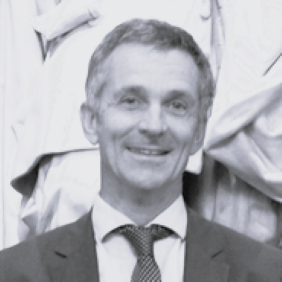
Nicholas Ayache is a research director at Inria, where he leads the EPIONE research team, dedicated to the digital patient and digital medicine. He is also the Scientific Director of the Interdisciplinary AI Institute 3IA Côte d’Azur, where he holds a research chair. His current research focuses on the introduction of AI algorithms to guide the prevention, diagnosis, prognosis and therapy of patients based on their medical images and all available data. N. Ayache is a member of the French Academy of Sciences and of the French Academy of Surgery. In 2013-2014 he was a visiting professor at the Collège de France, where he introduced a new course on the “personalized digital patient”. N. Ayache published over 400 highly cited scientific articles and a dozen of industrial patents, and co-founded seven high-tech companies. He has been a member of several strategic boards in France and abroad, including the strategic council of the new IHU RespirERA in Nice, dedicated to lung diseases.
Further information: http://www-sop.inria.fr/members/Nicholas.Ayache/ayache.html
Publications: https://scholar.google.com/citations?user=29XL16UAAAAJ
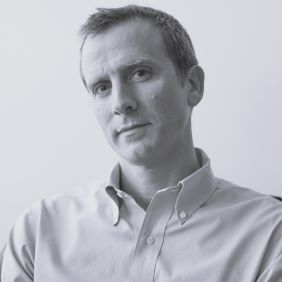
Francis Bach is a researcher at Inria, leading since 2011 the machine learning team which is part of the Computer Science department at Ecole Normale Supérieure. He graduated from Ecole Polytechnique in 1997 and completed his Ph.D. in Computer Science at U.C. Berkeley in 2005, working with Professor Michael Jordan. He spent two years in the Mathematical Morphology group at Ecole des Mines de Paris, then he joined the computer vision project-team at Inria/Ecole Normale Supérieure from 2007 to 2010. Francis Bach is primarily interested in machine learning, and especially in sparse methods, kernel-based learning, neural networks, and large-scale optimization He obtained in 2009 a Starting Grant and in 2016 a Consolidator Grant from the European Research Council, and received the Inria young researcher prize in 2012, the ICML test-of-time award in 2014 and 2019, the NeurIPS test-of-time award in 2021, as well as the Lagrange prize in continuous optimization in 2018, and the Jean-Jacques Moreau prize in 2019. He was elected in 2020 at the French Academy of Sciences. In 2015, he was program co-chair of the International Conference in Machine learning (ICML), general chair in 2018, and president of its board between 2021 and 2023; he was co-editor-in-chief of the Journal of Machine Learning Research between 2018 and 2023.
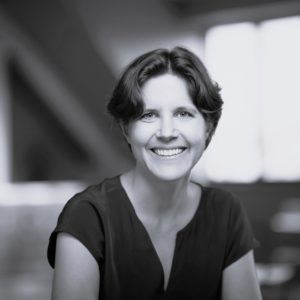
Joëlle Barral is a Senior Director of Research & Engineering at Google DeepMind (GDM). Based in Paris, she has a diverse portfolio of foundational research efforts, which includes theoretical and empirical aspects of frontier models as well as early-stage research in artificial intelligence and the life sciences. She is also in charge of GDM’s efforts in healthcare. She leads a team of researchers and engineers spread across Europe and North America. Joëlle Barral was previously software lead at Verily, Google’s sister life sciences company, and the head of Verily Surgical. She joined Verily in 2014 and was part of the team who started Verb Surgical, Verily’s joint venture with Johnson & Johnson’s Ethicon, pioneering a vision for the future of robotic surgery that leverages machine learning and digital tools to enhance the surgeon’s judgment, improve decision making, and positively impact clinical outcomes. Before joining Verily, she was with HeartVista, a spin-off from Stanford University, where she developed an MR software package for the comprehensive evaluation of ischemic and valvular heart diseases. Joëlle Barral has authored numerous patents on topics ranging from maternal health, digital pathology, surgical robotics, and medical imaging. She holds a B.S. degree in Math and Physics from Ecole Polytechnique, France, and M.S. and Ph.D. degrees in Electrical Engineering, in the field of high-resolution Magnetic Resonance Imaging, from Stanford University, where she was also a Simon Stertzer Biodesign Innovation Fellow. She is the 2019 recipient of the Pierre Faurre Prize.
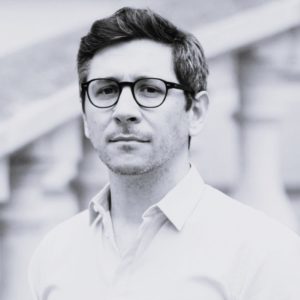
Dr. Antoine Bordes is the VP AI at Helsing. He has a deep knowledge of AI R&D from his 9 years of experience building out the Fundamental AI Research (FAIR) laboratory of Meta, the last 3 years as FAIR’s co-managing director. Prior to joining Meta (then Facebook) in 2014, he was a research scientist at CNRS in France and a postdoctoral fellow in Yoshua Bengio’s lab at the University of Montreal. He received his Ph.D. in AI from Sorbonne University in Paris in 2010, with two awards for best Ph.D. from the French Association for Artificial Intelligence and from the French Armament Agency. He has published more than 60 papers cumulating more than 40,000 citations at the intersection of deep learning and natural language processing.
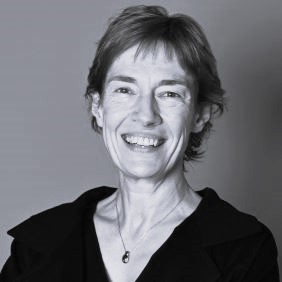
Anne Bouverot spent most of her career in the technology sector and now advises a number of public and private technology companies. She is currently Chairperson of Cellnex, Europe’s leading operator of telecommunications infrastructure. She also chairs the Board of Ecole Normale Supérieure, France’s leading “grande école” in Science and Humanities. In 2018 she co-founded Fondation Abeona “Championing Responsible AI” on societal impacts of artificial intelligence. Notable programs include a visiting Chair on Social Justice and AI and an introductory MOOC already followed by more than 300 000 people. She spent the first 20 years of her career with Orange in a number of positions, then became Director General of the GSMA (Global Mobile Operators Association) and later CEO of Morpho (digital security and identity solutions). She is a graduate of Ecole Normale Supérieure in mathematics and holds a PhD in artificial intelligence.

Daniel Cremers is Director of the Munich Center for Machine Learning and holds the Chair of Computer Vision and Artificial Intelligence at TU Munich. After studying physics and mathematics, he received his doctorate in computer science in 2002. He has conducted research in Heidelberg, Mannheim, Rennes, Los Angeles, Princeton, Bonn, Cambridge, and Oxford. He has co-authored over 500 publications and is listed among the top 10 most influential roboticists of the last decade. He received numerous awards including the Gottfried-Wilhelm Leibniz Prize, the biggest award in German academia. He has served as co-founder, advisor and business angel to several startups.
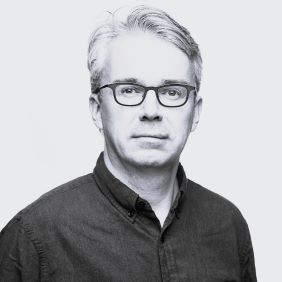
Laurent Daudet is the Co-CEO at LightOn, a startup he co-founded in 2016. He has a key role in growing a cutting-edge team of 25, and drives the business roadmap while leading fundraising and key partnerships worldwide. Laurent is currently on full-time leave from his position as Professor of Physics at the Université Paris Cité, one of France’s leading universities. He has held various academic positions: including fellow of the Institut Universitaire de France, associate professor at Université Pierre et Marie Curie (now Sorbonne University), and visiting positions in London, Tokyo, Japan, and Stanford. Laurent has authored or co-authored more than 200 scientific publications, and has been a consultant to various small and large companies. He is a physics graduate from Ecole Normale Supérieure in Paris and holds a Ph.D. in Applied Mathematics from Marseille University. Recently, Laurent Daudet co-authored Dream Machine, the first graphic novel on Generative AI (Appupen / Daudet, French version released in 2023 by Editions Flammarion, English version to be released in 2024 by MIT Press).

Lourdes Agapito holds the position of Professor of 3D Vision at the Department of Computer Science, University College London (UCL). Her research in computer vision has consistently focused on the inference of 3D information from single images or videos. She received her BSc, MSc and PhD degrees from the Universidad Complutense de Madrid (Spain). In 1997 she joined the Robotics Research Group at the University of Oxford as an EU Marie Curie Fellow. In 2001 she was appointed Lecturer at Queen Mary University of London and held an ERC Starting Grant from 2008 to 2014. In 2013 she joined UCL and was promoted to full professor in 2015 where she now heads the Vision and Imaging Science Group. Lourdes has served as Program Chair for CVPR’16 and ICCV’23, General Chair for 3DV’21, serves regularly as Area Chair for the top Computer Vision conferences (CVPR, ICCV, ECCV) and has been keynote speaker at ICRA’17, ICLR’21 and 3DV’22. In 2017 she co-founded Synthesia, the London-based startup and leading AI Video Generation platform which has grown to 330+ employees, with offices across Europe and New York. Following the Series C investment round led by Accel in 2023 that brought its valuation to 1B$, Synthesia now serves more than 50,000 businesses, including almost half of the Fortune 100 companies
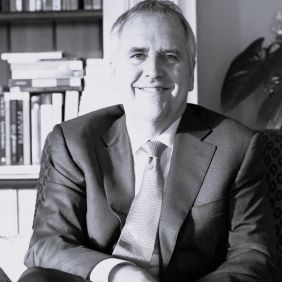
Michael I. Jordan is a researcher at INRIA and Professor Emeritus at the University of California, Berkeley. His research interests bridge the computational, statistical, cognitive, biological and social sciences. Prof. Jordan is a member of the National Academy of Sciences, a member of the National Academy of Engineering, a member of the American Academy of Arts and Sciences, and a Foreign Member of the Royal Society. He was the inaugural winner of the World Laureates Association (WLA) Prize in 2022. He was a Plenary Lecturer at the International Congress of Mathematicians in 2018. He has received the Ulf Grenander Prize from the American Mathematical Society, the IEEE John von Neumann Medal, the IJCAI Research Excellence Award, the David E. Rumelhart Prize, and the ACM/AAAI Allen Newell Award. In 2016, Prof. Jordan was named the “most influential computer scientist” worldwide in an article in Science, based on rankings from the Semantic Scholar search engine.
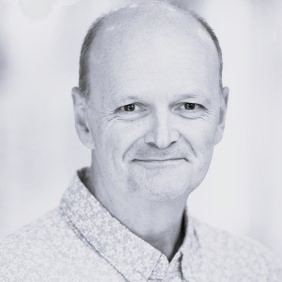
Dr. Luc JULIA, Chief Scientific Officer for Renault, was CTO and Senior Vice President of Innovation for Samsung Electronics, directed Siri at Apple, was Chief Technologist at Hewlett- Packard and cofounded a number of start-ups in the Silicon Valley. While conducting research at SRI International, he was involved in the creation of Nuance Communications, now the world leader in speech recognition. Recipient of Légion d’Honneur, the highest order of France, and member of its National Academy of Technologies, he holds degrees in Mathematics and Computer Science from the University Pierre et Marie Curie in Paris and earned a Ph.D. in Computer Science at the Ecole Nationale Supérieure des Télécommunications de Paris. He is the bestselling author of the book “There is no such thing as Artificial Intelligence”, holds dozens of patents and is recognized as one of the top 100 most influential French developers in the digital world.
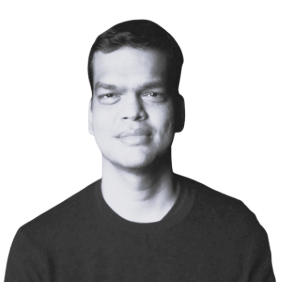
Sriram Krishnan is a general partner at Andreessen Horowitz where he invests in crypto and currently heads up the UK offices of a16z crypto. He works closely with Farcaster, Story Protocol, Kindred. Prior to joining a16z, Sriram led product and engineering teams at X, Meta and Snap. Sriram started his career at Microsoft as a founding member of Windows Azure. He was also previously a personal investor in several prominent tech companies. Sriram writes actively at @sriramk on Twitter and at sriramk.com. He co-hosts “The Aarthi and Sriram Show”, a leading podcast on tech and business.
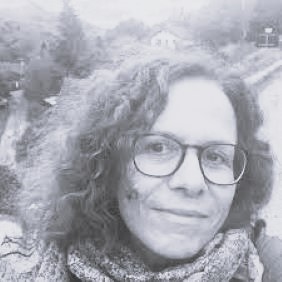
Anne-Marie Lagrange is a Research Director at the French National Center for Scientific Research (CNRS) at the Laboratory for Space Studies and Instrumentation in Astrophysics (LESIA) at the Paris Observatory, and associate Professor at Paris Sciences et Lettres University. She is a member of the French Academy of Science, and earned the Irène Joliot-Curie prize for the Female Scientist of the Year in 2011.
She specialized in the field of extra solar planetary systems, with the aim to understand how such systems form and evolve, and to search for planets of various kinds, down to Earth twins. She uses various kinds of approaches and observing techniques, in particular spectroscopy, absolute astrometry and high contrast imaging, and the combination of these techniques, to search for extrasolar planets, and characterize their atmospheres, and to study their link with the dust disks in which they orbit. She was the scientific PI of the first adaptive optics instrument on the VLT, which allowed her team and her to make the first images of extrasolar planets, opening thus a new path in the field. She finally tries to estimate and compensate for the stellar activity, which is the ultimate barrier against detecting Earth twins using radial velocities, and is a necessary step before imaging such planets.

Xavier is co-founder and Managing Partner at Elaia. He sits on the board of 11 companies – including the seed-funded unicorn Mirakl, iBanFirst, … He combines an entrepreneurial carreer with a VC experience in tech, as well as a past in research labs. Having started his career in the Arithmetics and Algebraic Geometry research lab at Université Paris-Sud, Xavier founded a start up in thelearning sector sold in 1999 to a French publisher. He then joined CPR (acquired by Crédit Agricole Indosuez) where he created and developed a VC business in the software and internet sectors.
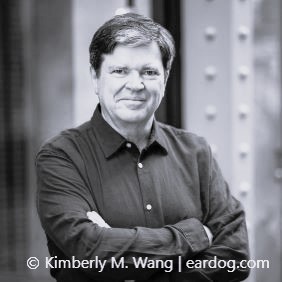
Yann LeCun is VP & Chief AI Scientist at Meta and Silver Professor at NYU affiliated with the Courant Institute of Mathematical Sciences & the Center for Data Science. He was the founding Director of FAIR and of the NYU Center for Data Science. He received an Engineering Diploma from ESIEE (Paris) and a PhD from Sorbonne Université. After a postdoc in Toronto he joined AT&T Bell Labs in 1988, and AT&T Labs in 1996 as Head of Image Processing Research. He joined NYU as a professor in 2003 and Meta/Facebook in 2013. His interests include AI, machine learning, computer perception, robotics, and computational neuroscience. He is the recipient of the 2018 ACM Turing Award (with Geoffrey Hinton and Yoshua Bengio) for “conceptual and engineering breakthroughs that have made deep neural networks a critical component of computing”, a member of the National Academy of Sciences, the National Academy of Engineering, the French Académie des Sciences

Professor at NYU from 1988 to 1994. Professor at Ecole Polytechnique, from 1994 to 2012. Co-founder and CEO of a semiconductor start-up from 2001 to 2007. Professor in Computer Science at Ecole Normale Supérieure from 2012-to 2017. Professor at the Collège de France in Data Sciences since 2017. Member of the French Academy of sciences, of the French Academy of Technologies and foreign member of the US National Academy of Engineering. IEEE and EUSIPCO Fellow. Recipient of the SPIE 2007 Outstanding Achievement Award, of the 2004 European IST Grand prize, of the 2004 INIST-CNRS prize for most cited French Researcher in engineering, of the 2015 IEEE Signal Processing best sustaining paper award, of the 2017 IEEE Freidrich Gauss Prize.
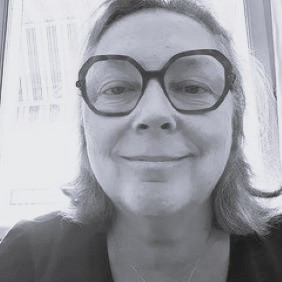
Doctor and professor of medical ethics and forensic medicine at Université Paris Cité. She heads the ETREs research team dedicated to understanding and studying the ethical issues involved in translational healthcare practices, particularly in oncology.

Cédric O is an entrepreneur and former Secretary of State for Digital Affairs. He is a non-executive co-founder of the generative AI startup Mistral AI and a board member of Artefact, a consulting firm specializing in data and AI. Additionally, he is a member of the national committee of experts on artificial intelligence. Cédric O graduated from HEC in 2006. After working for Dominique Strauss-Kahn and in consulting, Cédric O became an Advisor to the Minister of Economy and Finance, Pierre Moscovici, between 2012 and 2014. From 2014 to 2017, Cédric O worked for the Safran group, notably as the Deputy Industrial Director, responsible for the Factory of the Future project, and later as the Production Manager. As a founding member of the En Marche movement and treasurer of the 2017 presidential campaign, Cédric O served as an advisor to Emmanuel Macron and the Prime Minister, overseeing state participation and digital affairs from 2017 to 2019. In March 2019, he was appointed Secretary of State for Digital Transition and Electronic Communications. In this role, he supervises the government’s innovation policy, the growth of French Tech, as well as international (G7) and European negotiations related to digital regulation. He played a key role in crafting the Digital Markets Act and Digital Services Act during the French presidency of the Council of the European Union. Cédric O is also responsible for digital coverage of the territory, 5G deployment, and digital tools in the context of pandemic management, including the TousAntiCovid application. Finally, Cédric O is a member of the high-level advisory council on space exploration for the European Space Agency.
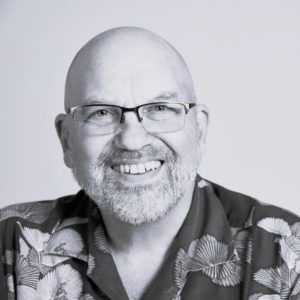
Marc Raibert is the executive director of The AI Institute a new research lab devoted to advancing both the intelligence of robots and their physical skills. He is also the founder of Boston Dynamics. Prior to Boston Dynamics, Raibert was a professor of electrical engineering and computer science at MIT, and CMU before that. There he created the Leg Laboratory, a lab that helped establish the scientific basis for highly dynamic robots. Raibert is a Founding Fellow of AAAI, a member of the National Academy of Engineering, was named Pioneer in Robotics in 2022 by IEEE and received the Engelberger Award in Technology.
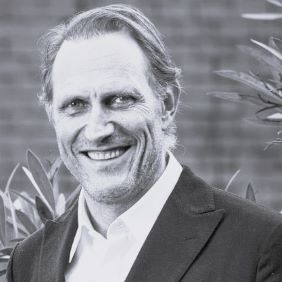
Bernard-Louis Roques is a Pioneer in European FinTech & Insurtech.
Launched Truffle Capital’s FinTech Incubator in 2015, Early Stage fund in 2018, and Scaleups fund in 2023.
Truffle Capital has 1bn€ AUM, 100 investments & 14 IPOs, with 22 investments in fintechs and insurtech.
Board Member of Finance Innovation (French governmental agency dedicated to Fintech), ACSEL (French digital economy agency). Repeat entrepreneur, co-founded Truffle Capital after selling his robotics company. Started as bond trader @ HSBC. Author of the « Truffle 100 » (research on software) & the « Fintech 100 » (research on Fintech). MBA from ESSEC Business School and ACE from MIT.
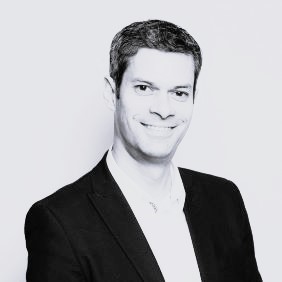
Benoît Sagot is a computer scientist specialised in natural language processing (NLP). He is a Senior Researcher (Directeur de Recherches) at Inria, where is heads the Inria research project ALMAnaCH in Paris, France. He also holds a chair in the PRAIRIE institute dedicated to artificial intelligence, and currently holds the annual chair for computer science in the Collège de France. His research focuses on language modelling, machine translation, language resource development and computational linguistics, with a focus on French in all its form and on less-resourced languages.
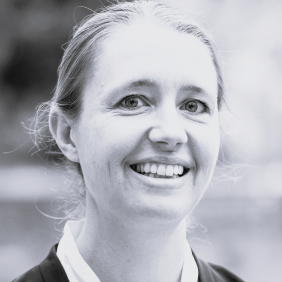
Stéphanie Schaer, general engineer of Mines, has been, since September 2022, the interministerial director of digital (DINUM). A former student of the École Polytechnique (1997), she is also a graduate of the École nationale supérieure des telecommunications/Télécom Paris. Her professional career is notably marked by stints at the Central Directorate for Information Systems Security (DCSSI, now ANSSI) from 2002 to 2006, then at the Ministry of the Economy, Industry and Employment where she is project manager on embedded electronics then head of the software industry office of the General Directorate of Competitiveness, Industry and Services in 2008. She later became deputy regional director of businesses, competition, of consumption, work and employment (Direccte) of Burgundy, then of Bourgogne-Franche-Comté. At the same time, in 2015, as an intrapreneur, she launched the State Startup Signals Faibles, which makes it possible to detect companies in difficulty early, to better support them, using data held by administrations. This service, now deployed throughout France, has benefited from DINUM support programs: entrepreneurs of general interest (EIG) and the State Startup incubation program, Beta.gouv . In 2019, Stéphanie Schaer became deputy director of Élisabeth Borne’s cabinet, at the Ministry of Ecological and Inclusive Transition then at the Ministry of Labor where she would then be appointed head of the cabinet. When Élisabeth Borne is appointed to Matignon in May 2022, Stéphanie Schaer becomes advisor to the Prime Minister. On September 26, 2022, she was appointed head of the interministerial digital department.
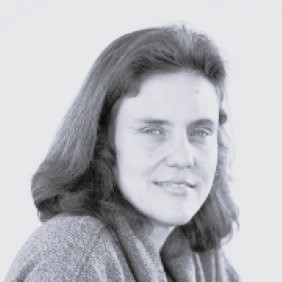
Cordelia Schmid holds a M.S. degree in Computer Science from the University of Karlsruhe and a Doctorate in Computer Science, from the Institut National Polytechnique de Grenoble (INPG). Her doctoral thesis on “Local Greyvalue Invariants for Image Matching and Retrieval” received the best thesis award from INPG in 1996. She received the Habilitation degree in 2001 for her thesis entitled “From Image Matching to Learning Visual Models”. Dr. Schmid was a post-doctoral research assistant in the Robotics Research Group of Oxford University in 1996–1997. Since 1997 she has held a permanent research position at Inria, where she is a research director. Dr. Schmid is a member of the German National Academy of Sciences, Leopoldina and a fellow of IEEE and the ELLIS society. She was awarded the Longuet-Higgins prize in 2006, 2014 and 2016, the Koenderink prize in 2018, and the Helmholtz prize in 2023, for fundamental contributions in computer vision that have withstood the test of time. She received an ERC advanced grant in 2013, the Humboldt research award in 2015, the Inria & French Academy of Science Grand Prix in 2016, the Royal Society Milner award in 2020, the PAMI distinguished researcher award in 2021 and the Körber European Science Price in 2023. Dr. Schmid has been an Associate Editor for IEEE PAMI (2001–2005) and for IJCV (2004–2012), an editor-in-chief for IJCV (2013–2018), a program chair of IEEE CVPR 2005 and ECCV 2012 as well as a general chair of IEEE CVPR 2015, ECCV 2020 and ICCV 2023. Starting 2018 she holds a joint appointment with Google research.
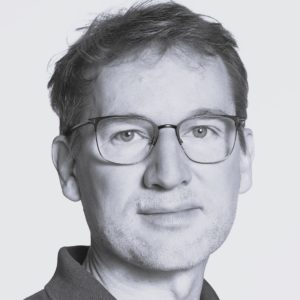
Jean-Philippe Vert is Chief R&D Officer at Owkin, an AI Biotech company that uses AI to discover and develop treatments for unmet medical needs, co-founder and CEO at Bioptimus, a start-up building AI foundation models in biology, and professor (on leave) at PSL University Mines Paris. Before joining Owkin in 2022, he was a research scientist at Google Brain (2018-2022), a research professor at ENS Paris’ mathematics Department (2016-2018); a Fullbright and Miller visiting professor at UC Berkeley’s Department of Statistics (2015-2016); a research team leader at the Curie Institute’s research center (2008-2018); a research professor and founding director of Mines ParisTech’s Centre for Computational Biology (2002-2018); and a research associate at Kyoto University’s Bioinformatics Center (2001-2002). He graduated in applied mathematics from Ecole Polytechnique (1995) and received his PhD in mathematics from Paris University (2001). His research interest concerns the theory and practice of statistical machine learning and artificial intelligence to model complex, high-dimensional and structured data, and their applications in computational biology and medicine.
